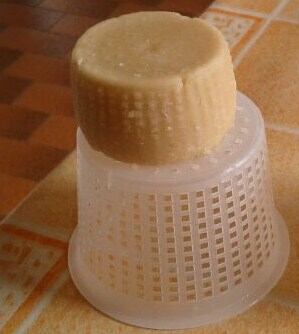Last month, Chr Hansen revealed its FAR-M coagulant - a pure camel chymosin (an enzyme found in rennet) ingredient developed to aid the production of cheese from camel milk - also has the ability to clot donkey milk.
Dr Giuseppe Iannella, the Italian food technologist behind the discovery, believes use of FAR-M could also be extended to milk from "other species that belong to the equus family."
This, Iannella told DairyReporter.com, could include milk from horses and zebras.
In his study, Rennet coagulation of donkey milk through pure camel chymosin FAR-M, Iannella said further investigation is needed “to determine if there are differences in the coagulation properties of asinine and equine milk.”
Coagulation activity
Extremely low levels of kappa-casein - a milk protein key to the cheese making process - in donkey milk have previously made coagulation "impossible."
During his study, however, Iannella discovered the ability of FAR-M "to coagulate the casein micelles of donkey's milk."
Samples of donkey milk - sourced from a farm in Italy in May 2014 and dosed with 1.5g of FAR-M per 50 litres - were used by Iannella in a series of coagulation studies.
The first set of tests were designed to evaluate the coagulation activity of pure camel chymosin in raw and thermized donkey milk.
Samples subjected to thermalization (heated in a water bath at 63C for one minute then rapidly cooled to 35C) showed no evidence of clotting.
All samples of raw donkey milk, which were placed in 35C water for four hours, "showed the presence of clot on the bottom of the beaker," said Iannella's study.
"Further investigation is warranted"

To evaluate the possibility of donkey cheese manufacturing, Iannella heated five litres of donkey milk to 35C in a water bath, before introducing starter cultures, calcium chloride and the FAR-M coagulant.
The mix was left to coagulate for five hours at room temperature (between 35C and 40C), before the resulting coagulum was cut, heated in whey at 45C for 10 minutes, drained, and stored at 25C.
At 3%, the yield was "lower than other types of milk due to the low levels of fat and casein in donkey milk," said the study, " but the the result is promising and shows possibilities of improving the quality of such cheese in the future."
“Further investigation is warranted to determine if there are differences in the coagulation properties of asinine and equine milk," the study concluded. "These technological methods represent informative steps for further trials and could be useful for industrial scale cheese processing of donkey milk.”
Iannella believes his findings could be useful in developing nations, where, according to 2006 Food and Agriculture Organization (FAO) statistics, around 96% (37.6% are in Asia and Pacific, 26.9% in Africa, 19.9% in Latin America, 11.8% in the Middle East) of the world's 41m donkeys live.
Source: Dr Giuseppe Iannella foodtech.iannella@gmail.com
Title: Rennet coagulation of donkey milk through pure camel chymosin, FAR-M
Author: G Iannella
